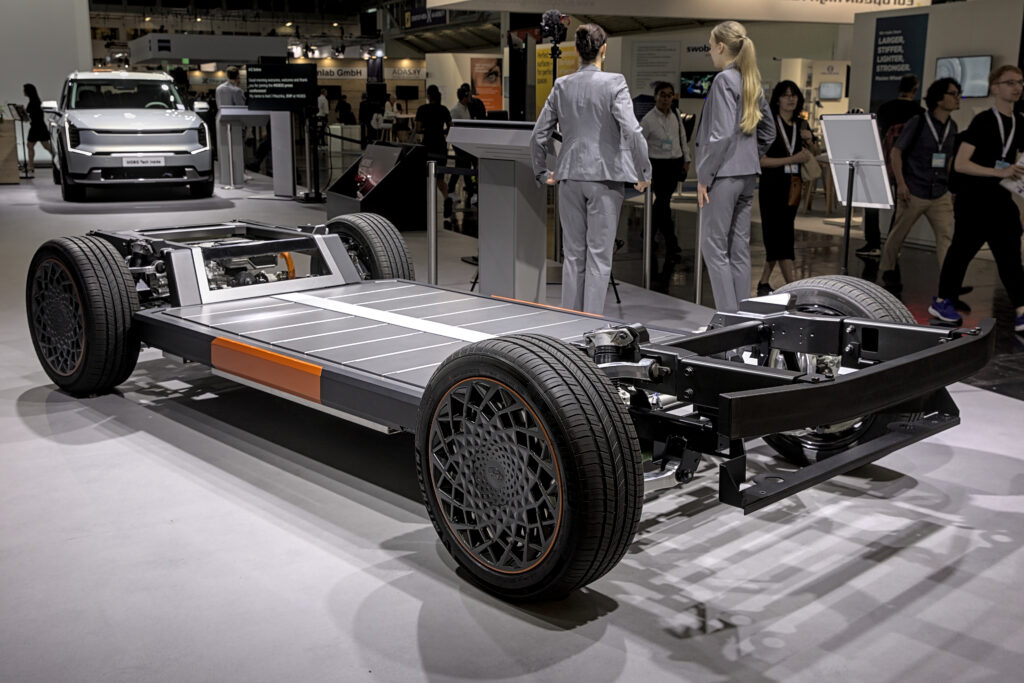The Peninsula
US Manufacturing and Green Energy Transition Bolstered by $32 Million Award for Hyundai Mobis

A $32 million subsidy to Hyundai Mobis, a subsidiary group of South Korea’s Hyundai Motor Group that specializes in auto parts manufacturing, from the Biden administration on July 11 is set to help secure US electric vehicle (EV) supply chains. It came as part of $1.7 billion in Domestic Automotive Manufacturing Conversion grants from the Department of Energy (DOE) to a select number of automotive industry manufacturers within the United States with the goal of revitalizing American industry and supporting the development of eco-friendly vehicles..
The award is being combined into a $65 million package that Hyundai Mobis is injecting into its American Autoparts, Inc. subsidiary factory in Toledo, Ohio to focus on producing both plug-in hybrid electric vehicle (PHEV) chassis and legacy internal combustion engine (ICE) assembly and will also be used to create a new battery system fabrication facility for plug-in hybrid electric vehicles (PHEVs). Supporting 354 existing United Auto Workers (UAW) union jobs and producing an additional 223 jobs, it is one of many Korean projects in the United States helping to position its readiness for a green energy future while bringing manufacturing back to the America’s manufacturing heartland.
With recently unveiled federal emissions guidelines, expectations are that by 2032 two-thirds of new car sales will be electric vehicles. It is estimated that 11 million EVs will need to be sold annually to meet the outlined goal. This makes investments in US battery and EV manufacturing, like the ones Hyundai Mobis is making, critical to prepare US supply chains for the change.
In 2022, 70 percent of the world’s EV batteries were produced by China while the United States produced less than just 10 percent. Addressing this gap and other supply chain vulnerabilities is essential to US economic security under the new industrial policies, and the White House has accordingly put an administration-wide focus on building out EV battery and automotive supply chains in the United States through programs like the DOE’s Advanced Technology Vehicles Manufacturing Loan Program and EV subsidies within the Inflation Reduction Act (IRA).
Mobis’ $65 million total investment in Ohio, along with dozens of other new battery and EV facilities brought to the United States from economic allies like Korea, are all part of the success of those kinds of programs, and they are just some of the many examples of how the United States and Korea are working together toward a secure and sustainable future.
Tom Ramage is an Economic Policy Analyst at the Korea Economic Institute of America. The views expressed here are the author’s alone.
Photo by Alexander-93 on Wikimedia Commons.
KEI is registered under the FARA as an agent of the Korea Institute for International Economic Policy, a public corporation established by the government of the Republic of Korea. Additional information is available at the Department of Justice, Washington, D.C.
